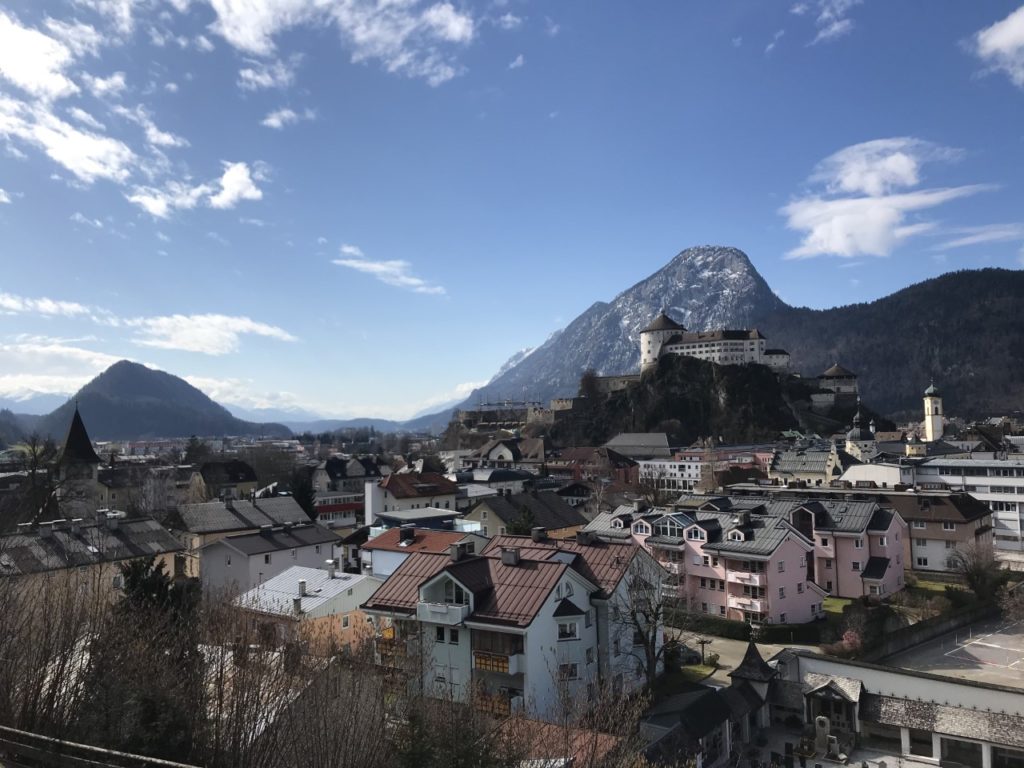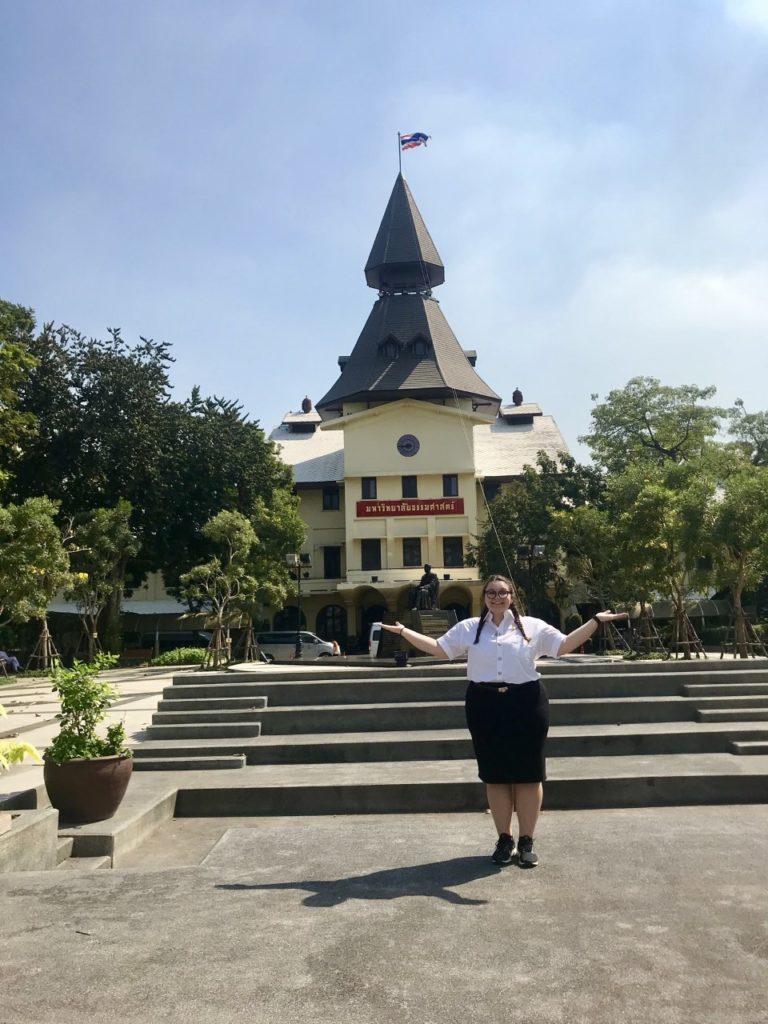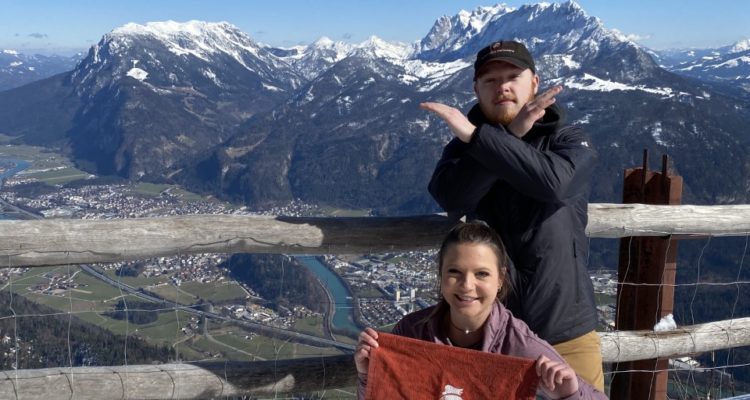By Lauren Upchurch
These days, it is extremely hard to find someone whose life has not been affected by COVID-19. For study abroad students, this impact takes a unique form.
Jacob Redmon, a junior computer science major, was studying in Northern Ireland when he learned he would have to return due to the coronavirus.
“At first, I was devastated that my time abroad had been cut short by nearly two and a half months,” Redmon said, “but as more information came out about coronavirus, I realized it was important for me to get back home before it wasn’t possible anymore.”
Dr. Gabriele Bosley, the executive director for study abroad and international learning, said in the spring semester, Bellarmine had 78 students in Europe, Asia and Central and South America, as well as 20 faculty and staff abroad. Of the 78, 75 were abroad when the crisis began.
Bosley said what she was seeing from foreign news outlets around the globe made her realize the potential impact it could have on study abroad programs.
“As more and more countries reported cases and restrictions of movement,” Bosley said, “we repatriated all students one by one from Spain, Germany, Austria, England, Northern Ireland, the Netherlands, Peru, Ecuador, Thailand, over the course of a couple of weeks.”
Junior communication major Katie O’Dell, who was studying in Austria, said when she learned she would have to return home, she was devastated and in denial.
“When we were called home, the situation in Kufstein was not bad at all, and I wanted to do everything in my power to try to stay,” she said. “It felt completely unfair. When I first read the email, I immediately broke down, then I became mad and was looking for any possible excuse or loophole to stay.”

O’Dell said she was shocked and had a hard time grasping the idea that her experience was ending so abruptly.
Zoey Rister, a sophomore psychology and criminal justice major, who was studying in Bankok, Thailand, said she is also having trouble coming to terms with these unforeseen circumstances.
“Coming back so suddenly has been horrible,” she said. “I wasn’t able to say goodbye to any of my friends in Thailand.”

Bosley said there are no Bellarmine students still abroad through the program.
“Bellarmine was one of the few institutions that was able to bring every single student home for 14 days of self quarantine after arrival in the U.S.,” Bosley said. “Luckily, not a single one became infected.”
Globally, there have been areas dealing with a higher number of cases than others, including countries such as China and Italy. Bosley confirmed there were two students studying in Northern Italy, which has been the epicenter of infections and deaths in Europe.
“As soon as Northern Italy began restricting movement,” Bosley said, “we called our students studying at the Catholic University of Milano home and facilitated their enrollment in online courses at Bellarmine-affiliated universities around the U.S. since it was too late to join a Bellarmine course on campus as we were moving into the second half of the semester in Louisville.”
Bosley said the process for most study abroad students meant adjusting return flights, meeting with their host university and international officers, unenrolling or making arrangements for online classes with their host universities and enrolling in online classes at Bellarmine-affiliated institutions in the U.S. to maintain full-time status.
O’Dell said getting home for her was very challenging. When she heard the news she would have to return home, she said she booked a flight out of Munich, Germany, for later in the week, but had to change her flight again due to Germany closing its borders.
“I packed my bags as quickly as possible on Sunday night and tried to buy a train ticket to Munich, only to find that all of the trains between [Austria and Germany] had been cancelled,” she said.
After lots of arranging, O’Dell said she made it back to the U.S., and her transition through customs and security was fairly smooth.
Redmon said his return to the U.S. also was challenging.
“When I began planning how I would get home,” Redmon said, “it quickly became a nightmare as there was no way for me to contact my airline to change my flight because they were getting tens of thousands of calls every day, so I ended up having to schedule an entirely new flight.”
Rister also said she had a stressful experience getting back to the U.S.
“For me the process of getting home was terrible,” Rister said. “I was in a bad spot for trying to get home. There were barely any flights going out of Thailand and the boarders for most countries in Asia were closed.”
Rister said that on top of struggling to arrange transportation home, she was unable to immediately return to her home, due to her mother being immunocompromised.
Once the logistics of travel and course changes were finished, study abroad students had to self-isolate for two weeks and had a one-on-one meeting with Bosley to discuss the challenges that come with re-entering the U.S. on such short notice and under such unfortunate circumstance.
“Changing my habits from living in a small city where I was able to walk anywhere I needed to back to living in the countryside was a little difficult,” Redmon said, “as was getting used to online classes and tests six time zones ahead of me, but after about a week or two I was back on track.”
Rister said one of the hardest parts of coming back to the U.S. is thinking about all the things she was going to do with the time she had left in Thailand.
“I wasn’t able to see and experience everything,” she said. “My travel plans to see more of Thailand and go to other countries never happened. This experience was taken away from us– all of us.”
O’Dell said she has greatly struggled with her transition back to the U.S.
“It has been one of the most difficult transitions of my life,” O’Dell said. “Being uprooted from the most incredible experience of my life was nothing short of traumatic. What made it more difficult was coming back and not having any community—straight to quarantine. It really hit like a depression.”
She said that writing and reconnecting with family and teammates has helped her cope with the disappointment she feels.
“Every day I’m learning to let go a little more, but no part of this experience is easy for anyone,” O’Dell said. “Words could never do this experience enough justice.”
Even through the uncertainty of international travel, Bosley said she is confident in the future of Bellarmine’s study abroad program.
“These are likely students who will shift and adapt to the changing circumstances,” Bosley said. “Ultimately, that is what learning abroad is all about—frame shifting, code shifting, developing tolerance for ambiguity, for the unpredictable, the seemingly impossible—in short, developing grit.”
“I am sure the destinations for students may shift for a while, until we are all back on stable ground. And we will likely have to change how we plan, deliver and execute our international experiences in the future, just like we will have to live our daily lives differently from this day forward in a post-Corona world.”
Redmon said even though his time was cut short, his experience was more than he could have asked for and he is glad he had the opportunity.
O’Dell and Rister both echoed this sentiment, and said they had amazing experiences studying abroad.
“Bellarmine students, faculty and staff got through this spring semester crisis with great efforts of collaboration from colleagues around this entire campus working as a team,” Bosley said. “That is and has always been the Bellarmine way.”
Check out O’Dell’s blog to hear more of her thoughts on study abroad and COVID-19: https://ktodell0.wixsite.com/studyabroad

